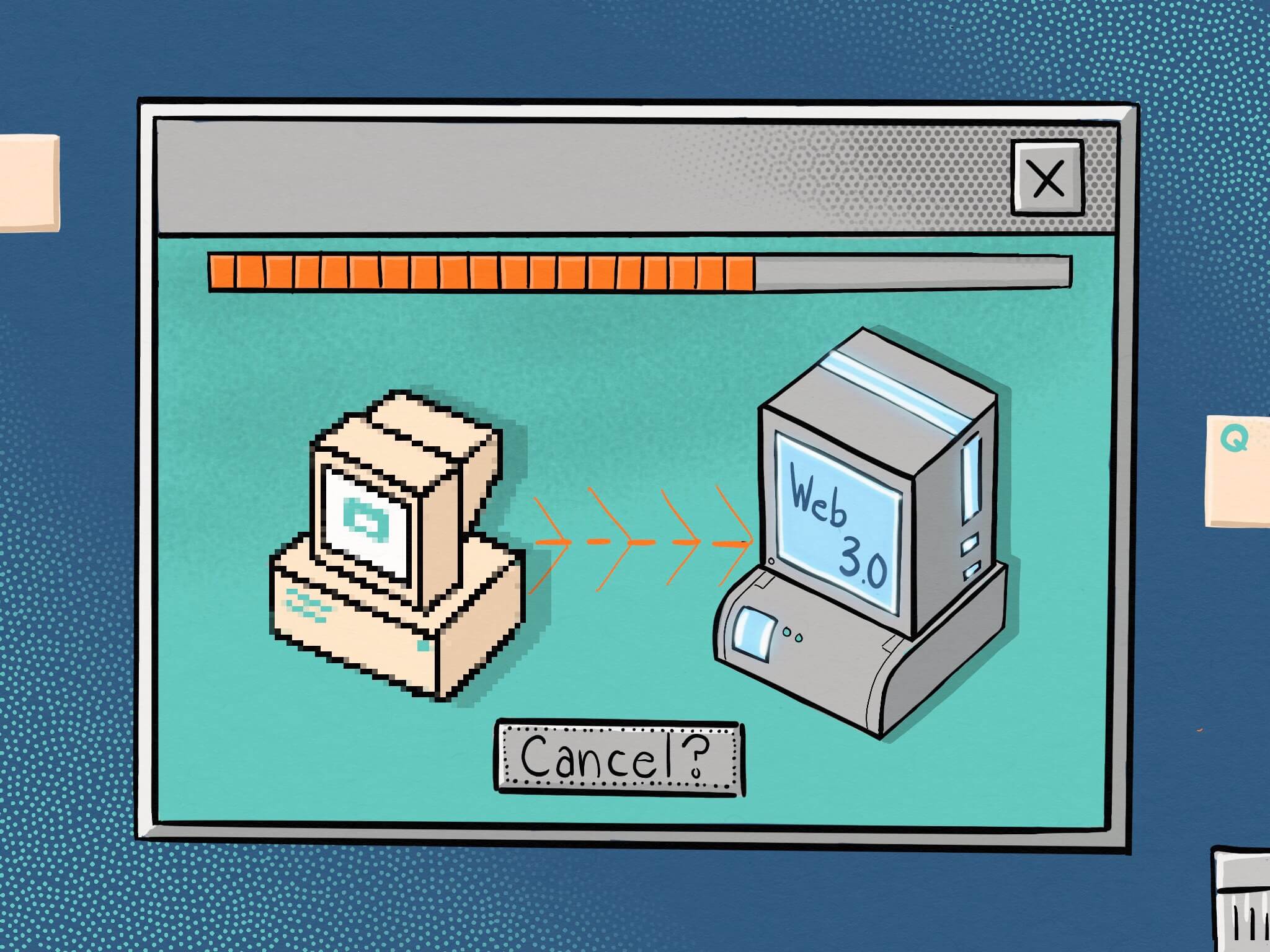Quantfury Gazette
The dissonances of Web 3.0

I remember how the Web was beginning to transform in the late 1990s and early 2000s. Connections were moving from Dial Up to ADSL, which provided higher speed and the possibility of being connected 24 hours a day at a fixed cost. This evolution added to the advances in web development made sites start to be more visual, leaving behind the pure text aesthetics.
It wasn’t long before numerous companies emerged to try to order this “digital chaos.” It was the time of the dot coms. From there, names like Yahoo or Google (NASDAQ: GOOGL) emerged, which were entrusted with making the Web “simpler,” less technical, and therefore within reach of the user with little knowledge. Then came the “free” services: mailboxes, discussion forums, etc., and finally, the first social networks. It was a fascinating time. We began to have a digital life. It took a few years before we understood that although we were not paying for those services with money, we played with two precious currencies: privacy and freedom.
Those dreams of “free information” faded. The excessive control and overload of digital clutter pushed the tech-savvy into more technical niches. It was as if we longed to reset the Web and return it to its previous state, and out of that sentiment came the keyword “Decentralization.” It’s a tricky term and one that makes many uncomfortable.
In the crypto world, there are interesting developments such as Filecoin (FIL) with its decentralized storage network or Decentralized App platforms such as Ethereum (ETH), EOS, Solana (SOL), and Avalanche (AVAX). And this is where we encounter one of the dissonances of Web 3.0: having to deliver these new products and features to the everyday person.
Then we find ourselves again in the paradox in which companies intervene to make the new Web 3.0 “more accessible.” And we’re back to square one. Perhaps Web 3.0 failed to answer the most basic question: what user profile will it be oriented toward?
Meanwhile, Elon Musk argues through memes with Jack Dorsey on Twitter (NYSE: TWTR), showing their opposing views on the subject. But the real underlying discussion is how to make info Web 3.0 more than just a simple upgrade of Web 2.0.
Perhaps in just a couple of years, we will be navigating a totally decentralized and free Web, or not. What is certain is that the seed has been planted, and everything will depend on those who water it.
Want to get published in the Quantfury Gazette? Learn more.
